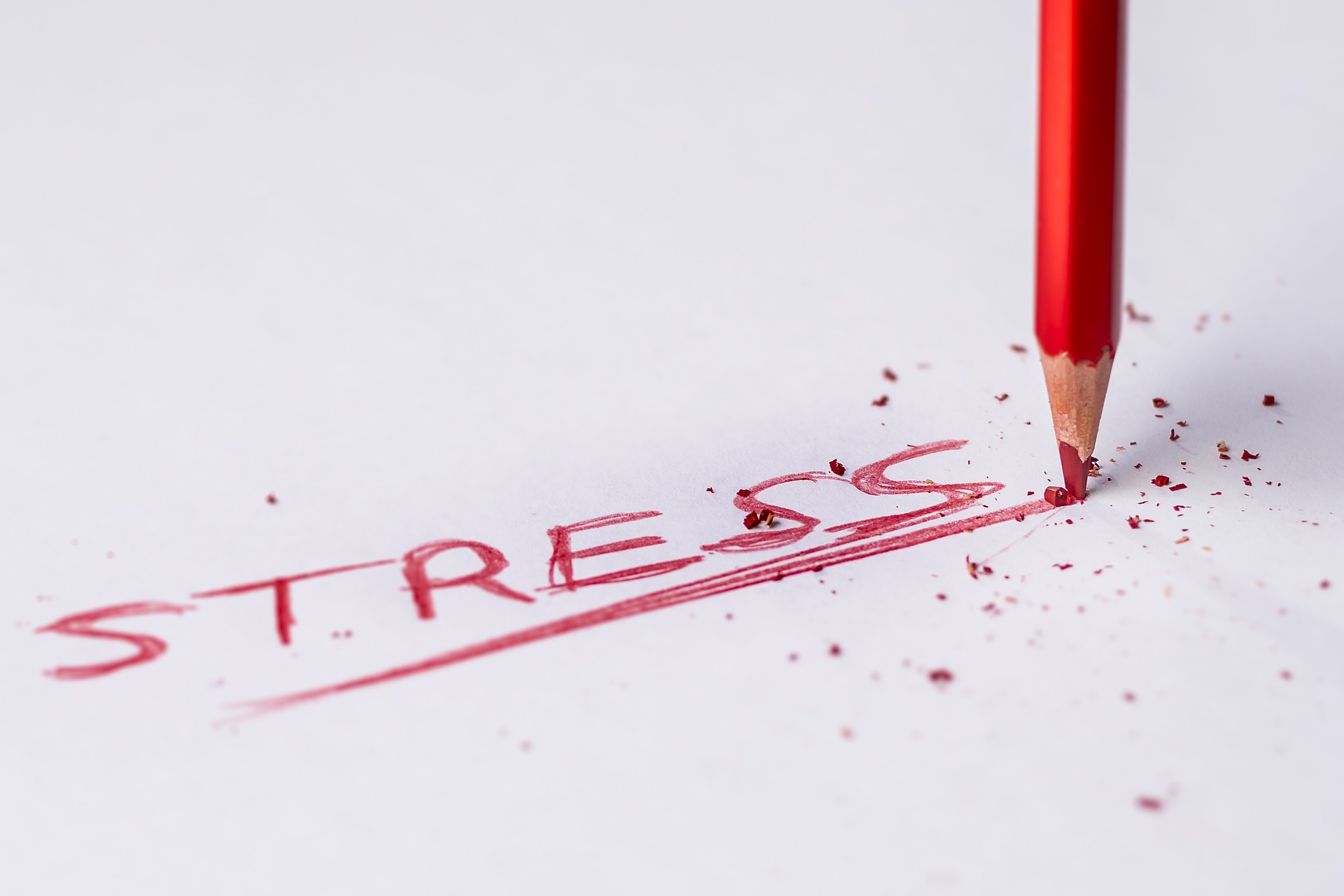
SICKLE CELL AND STRESS
Image by Pedro Figueras from pixabay.com
One major contributor to one having a Sickle Cell crisis is stress; let’s look at the definition of stress and how we can manage it in our lives.
What is stress?
Stress is your body’s response to certain situations. It’s subjective, so something that is stressful for you may not be stressful for someone else. There are many different kinds of stress and not all of them are bad. Stress can help you act quickly in an emergency or help you meet a deadline.
Stress can affect your physical and mental health, and your behaviour. Your body responds to stress by producing chemicals and hormones to help you rise to the challenge. Your heart rate increases, your brain works faster, and you have a sudden burst of energy. This response is basic and natural. But too much stress can have harmful effects. It’s impossible to completely eliminate bad stress from your life, but you can learn to avoid and manage it.
Stress causes acidity in the body and increases free radicals – contributing to pain and inflammation.
Is all stress bad?
Not all stress is bad. In fact, some stress heightens your senses, helping you to avoid accidents, power through unexpected deadlines, or stay clear-minded in chaotic situations. This is the “fight-or-flight” response that your body triggers in times of duress.
But stress is meant to be temporary. Your body should return to a natural state after the situation has passed. Your heart rate should slow, your muscles should relax, and your breathing should return to normal.
The pressures and demands of modern life may put your body in a heightened state for a long period of time, making your heart pump hard and your blood vessels constrict for longer than your body can handle. Over time, these physiological demands can take a toll on your body.
Types of stress
1. Acute stress
Acute stress is the most common type of stress. It’s your body’s immediate reaction to a new challenge, event, or demand, and it triggers your fight-or-flight response. As the pressures of a near-miss automobile accident, an argument with a family member, or a costly mistake at work sink in, your body turns on this biological response.
Acute stress isn’t always negative. It’s also the experience you have when riding a roller coaster or having a person jump out at you in a haunted house. Isolated episodes of acute stress should not have any lingering health effects. In fact, they might actually be healthy for you, as these stressful situations give your body and brain practice in developing the best response to future stressful situations.
Severe acute stress such as stress suffered as the victim of a crime or life-threatening situation can lead to mental health problems, such as post-traumatic stress disorder or acute stress disorder.
2. Episodic acute stress
When acute stress happens frequently, it’s called episodic acute stress. People who always seem to be having a crisis tend to have episodic acute stress. They are often short-tempered, irritable, and anxious. People who are “worry warts” or pessimistic or who tend to see the negative side of everything also tend to have episodic acute stress.
Negative health effects are persistent in people with episodic acute stress. It may be hard for people with this type of stress to change their lifestyle, as they accept stress as a part of life.
3. Chronic stress
If acute stress isn’t resolved and begins to increase or lasts for long periods of time, it becomes chronic stress. This stress is constant and doesn’t go away. It can stem from such things as:
- poverty – a dysfunctional family – an unhappy marriage – a bad job
Chronic stress can be detrimental to your health, as it can contribute to several serious diseases or health risks, such as:
- heart disease – cancer – lung disease – accidents – cirrhosis of the liver – suicide – Sickle Cell crisis
Managing stress
Stress affects each person differently. Some people may get headaches or stomachaches, while others may lose sleep or get depressed or angry. People under constant stress may also get sick a lot. Managing stress is important to staying healthy.
It’s impossible to completely get rid of stress. The goal of stress management is to identify your stressors, which are the things that cause you the most problems or demand the most of your energy. In doing so, you can overcome the negative stress those things induce.
The Centers for Disease Control and Prevention Trusted Source recommend the following to help cope with stress:
- take care of yourself, by eating healthy, exercising, and getting plenty of sleep
- find support by talking to other people to get your problems off your chest
- connect socially, as it’s easy to isolate yourself after a stressful event
- take a break from whatever is causing you stress
- avoid drugs and alcohol, which may seem to help with stress in the short term, but can actually cause more problems in the long term
Outlook
Stress is a part of life and not all stress is bad. There are many types of stress, from minor incidents that last a little while, to chronic or long-term stress that is ongoing. Stress affects everyone differently but it can lead to a variety of health issues. Managing stress is important to maintaining a healthy and fulfilling life.








Your write up are always educative and encouraging. I’m a mother of 2 warriors (16&7).
I belong to a support group at uniabuja teaching hospital and was involved in school club when I was teaching.
Hope to work together with you.
Thanks and may the good Lord strengthened you.
Happy new year to your Grace and thank you for your words of encouragement. I love support groups because you tend to find out about other stuff going on out there that you don’t already know about. I wish you and your family, especially your warriors well.
Very informative and helpful
Hello Sesan, thank you for your words of encouragement and I wish you well.